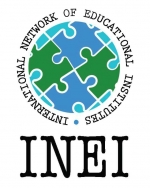Recommendations
Climate change is the greatest public policy issue of our time. If humanity is to respond to the challenges, education has a key role to play in promoting understanding and helping individuals, society and governments to make informed choices. This is not simply about giving people infor¬mation, but ensuring that education – and schools specifically – is mobilized to re-orient society towards sustainable practices.
Education is not a ‘magic bullet’ in approaching climate change and sustainability, but without co-ordinated educational interventions, even the best thought through technical policies will fail.
In order to promote such a reorientation the International Alliance of Leading Education Institutes has agreed on the following eight recommendations, informed by the jointly conducted research project and targeted the world’s political decision makers:
1 # Climate change makes sustainable development an urgent priority. Sustainable development is impossible without learning. We are therefore clear that policies which promote Education for Sustainable Development should play a key part in the negotiation of global agreements on climate change policy (COP15)
2 # Societies need to change radically consumption, production and behaviour patterns to meet the challenges we face. The urgency of climate change policy and sustainable development risks narrowing the role of education to communication of expert-defined advice to citizens. This will be counter-productive in the long-term. We strongly recommend maintaining and implementing the more ambitious aims of Education for Sustainable Development providing people with the competences to take part in the shaping of sustainable development at all levels.
3 # Education for Sustainable Development will make demands on all of society but schools will play a critical role, through what they teach and how they model sustainable practices. Governments need to ensure that schools are able to play a leading role in Education for Sustainable Development through the way education systems are managed, schools are organized and pupils taught.
4 # Whole-school approaches are promising: societies need to re-orient schooling towards a stronger emphasis on education for sustainability. In practical terms, this means greater interdisciplinary work, participation in authentic sustainability challenges and interaction with others outside school. We recommend these approaches as a way of integrating Education for Sustainable Development into current educational practices.
5 # One of the key obstacles to Education for Sustainable Development is teacher knowledge and understanding, because of the lack of pre- and in-service teacher training in Education for Sustainable development. We recommend allocating resources to remedy this: universities should offer Education for Sustainable Development courses for pre- and in-service teachers and governments should implement policies which help all teachers to develop their capacity to implement Education for Sustainable Development.
6 # Teacher education in Education for Sustainable Development will not change school practice unless re-sources and time for experimentation are provided and the sustainability is integrated into the curriculum. Thus, policy initiatives in teacher education should be coordinated with support for Education for Sustainable Development at school level.
7 # Interaction between researchers, teachers, NGOs, public officers and others in the field of Education for Sustainable Development is essential, in order to support knowledge shar¬ing, enhance curriculum development and promote more valid and reliable ways of evaluating Education for Sustainable Development. We recommend the establishment of mediating organizations and groups to promote this. Regional Centres of Expertise on Education for Sustainable Development, which already exist at some places, may serve as models for this endeavour.
8 # Education for Sustainable Development research needs to be augmented. It should be focused on:
(1) documenting the state of practice and identifying promising practices,
(2) exploring educational outcomes and their evaluation in respect of Education for Sustainable Development,
(3) identifying and explaining opportunities and problems of general relevance.
As people are influenced by a number of different agents and media, informal and non-formal education is an important field that needs to be studied more thoroughly.
